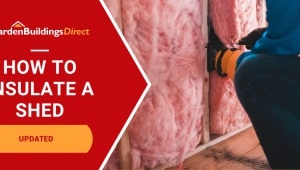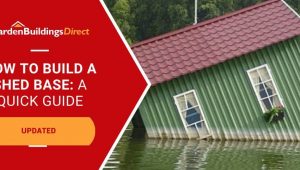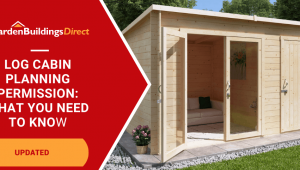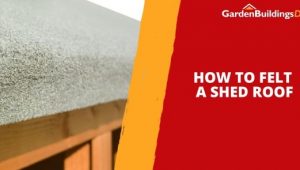Jump to:
Metal sheds. These structures are known for their lightweight, low-maintenance, and fire-resistant qualities. Not all, though, are the same in terms of material. Some use steel or the galvanised version, and others aluminium. This guide explains each one and how it changes what the shed offers.
Steel Metal Sheds
Steel is a rigid metal made from an alloy of iron and carbon, an upgrade from pure iron. That mix gives it strength without making it brittle. In sheds, it gives a solid structure, from the framework to cladding (or panels) or roofing, so it’s pretty heavy. This material can also take weight and pressure while keeping rot and pests at bay.
But there’s a catch—it can rust if not treated well. Bare steel exposed to rain and damp will corrode over time. Thus, it needs a good protective finish, like paint or powder coating. Enter galvanised steel.
Galvanised Steel Metal Sheds
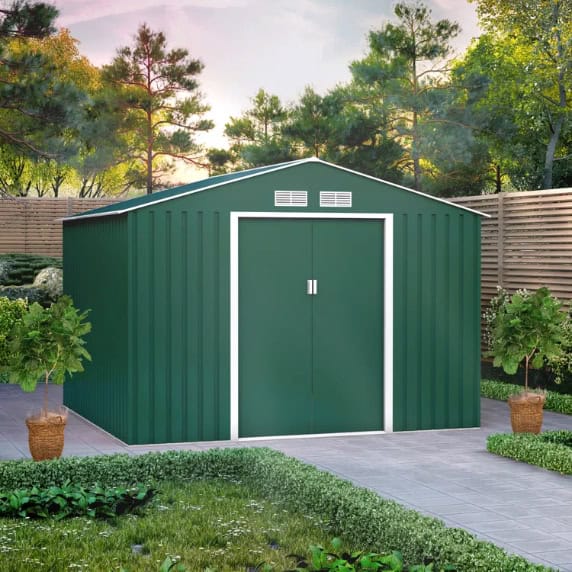
Most manufacturers take care of this special coating process during production. These units come hot-dipped galvanised as standard, like this BillyOh metal shed. But in essence, this galvanised design is just steel with an extra buffer.
The coating results in durable and long-lasting protection against rain, damp, and even salt in coastal areas. Because of this, galvanised steel sheds last longer without regular maintenance.
Aluminium Metal Sheds
Aluminium is a lighter and malleable material. It starts as bauxite, a rock processed into aluminium oxide. From there, it’s melted down to extract pure aluminium. It reacts to air, forming a thin layer that stops further corrosion. This is what gives the material its rust resistance.
Aluminium sheds can also support the same load as a steel structure but weigh half as much. This makes them easier to handle and assemble.
However, we’ve heard from customers in high-wind areas that anchors might be needed to keep the shed in place during storms, due to their lightweight nature.
Which Metal Garden Shed Is Best for You?
Each metal has its own strengths. Go for standard steel if you want a strong, heavy-duty shed and don’t mind doing a bit of upkeep to avoid rust.
Choose galvanised steel if you like the strength of steel but want less hassle. You get the same tough build, but with added rust resistance baked in.
Pick aluminium if you need something lightweight and easy to put together. It’s perfect if you have a small garden, too, or plan to move the shed around.
FAQs
How strong are metal sheds?
The strength depends on the material. Regular and galvanised steel are hard-wearing and corrosion-resistant. Aluminium is on the lightweight side, but its durability isn’t compromised.
Are metal sheds noisy when it rains?
It can be quite noisy. For one, thinner units with less insulation amplify the sound more when rain hits. Thicker models with better insulation might dampen the noise somewhat. The sound will still be present, but it’ll be less intense and more subdued.
Do metal sheds need a base?
Yes, they are no exception, even those with models that come with a foundation kit as standard. The risk of sinking is significant due to their weight. This is especially crucial for larger, permanent sheds in moisture-prone areas.
How long do metal sheds last?
A metal shed can last from 15 to 30 years or even longer, depending on some factors. These include the quality of the materials and how well they’re built and put together.
